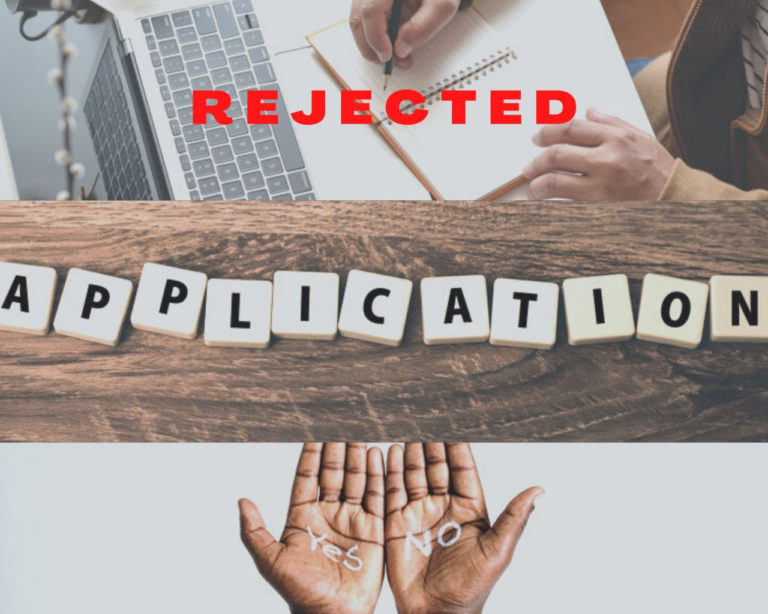Have you already packed everything for your upcoming trip and you are ready to go but you found out that your visa application was rejected? That must be very upsetting. This is why it is so important that you read all the necessary information and pay so much attention while completing your application.
However, when it’s over and done with, you shouldn’t focus on what you’ve done bad but how you can fix it. Today, you find out why your visa was refused, what can you do when your visa application is denied, how to write an appeal letter and how to prevent future visa application denials?
Why your visa application is rejected
Receiving a rejection of your visa application does not mean that you are banned for life from coming to the country you applied for. Read the refusal letter you received carefully and you will find out the reason why it has been refused.
It could have been a mistake so you can correct it while submitting a new application which means you will have to pay the visa fee again.
However, if you have provided false information about yourself or have done anything else to mislead the authorities, you will be banned from entering the country for several years (in the UK until 10 years). But don’t worry because this measure applies only in exceptional circumstances.
Common reasons why your visa was refused
Depending on the country from where you apply and to where you want a visa, the reasons might be different. However, there is a list of the most common reasons why your visa was refused:
- Applying for the wrong type of visa.
- Applying through an unprofessional agency – For instance, if you need to enter the country for private medical treatment, it will be a mistake to apply for a standard visitor visa. A travel agency employee might not know the difference which will cause your visa rejection.
- Using unacceptable documents – invalid or false documents like birth or marriage certificate, travel insurance or even a false travel document is completely not allowed.
- Failure to provide evidence to support the provided information – applicants often forget that each word of their application must be backed by evidence. If not, a caseworker will think it is false information or misrepresentation.
- Failure to mention a family in the country you plan to visit; providing contradictory information; giving exaggerated periods of stay in the country – if people who check will think that you have provided misleading or false information, they will check very carefully every suspicious detail and will refuse as soon as they find anything. For instance, staying in a country for a long time without enough funds on your bank account or if you fail to mention your extended family in the country, you will be banned from travelling to the country for many years.
- Financial inability to support yourself – authorities need to know and see that you earn enough money in your country to not only buy a return ticket but also support yourself during your trip.
- The inability of your sponsor to support you – if you are applying for a family visa, for example, to join your British spouse, (for example your future spouse from the country you want a visa from) they have to meet the requirements.

What can you do when your visa application is denied?
The moment you find out about the visa rejection is probably very disappointing and upsetting but, in some cases, you can still apply for a visa after refusal.
The reason is always notified to the applicant so you know what was wrong. Now, you can fix the problem by just applying again and not repeating what you’ve done or improving your situation.
Another option is appealing to the refusal. You can apply when you think your application was correct so you just disagree with the refusal decision.
How to write an appeal letter?
Writing a good appeal letter can cost you a lot of energy and even if it is based on very strong grounds it can not be enough sometimes.
This is a guide that will help you be sure what your appeal letter has to include:
- Personal Details – your name and surname, date and place of birth, passport number, as well as your current address. It’s recommended to put your email address and phone number in the letter as well.
- The date when your application was rejected – at the very beginning you have to mention when you received the rejection letter on your application.
- The reason behind your visa refusal – you have to mention clearly why you have not obtained the visa, following what was in the rejection letter you received.
- Why do you believe the rejection was incorrect – this is the most important part of your appeal letter so try to write it very well. In this part, you have to explain why you think your application was wrongly rejected, and why they should approve it. You should point to the main reason or make a list of a few, why you believe the decision on the denial of your application must be overturned.
- Your signature – after your letter is ready, print it and sign it at the end because letters submitted without signature will be turned down.
The appeal must be submitted within 15 days of the receipt of visa refusal to the Consulate that decided to refuse the visa. With the original signature of the appellant, the letter has to be delivered in person or sent by mail (not email).
The appeal will be reviewed and the outcome of the review is sent to the applicant by the same Consulate.
Can my appeal letter be denied?
An appeal letter is a good chance that someone will consider your application again so you have to write it well. However, it is not a guarantee that you will get the visa.
All appeal letters are considered if written, signed and sent well but still, your reasons in some cases might be not enough if the reason for visa rejection was irrefutable.
How to prevent future visa application denials?
It is good to pay attention to the details because even if some forms seem to be easy, one mistake can ruin the whole process.
While applying, make sure you upload the right documents which have to be, obviously, still valid and be sure that you have enough money for the journey as it is important to prove that you can financially handle the whole period of you being abroad and you have money for the way back as well!

